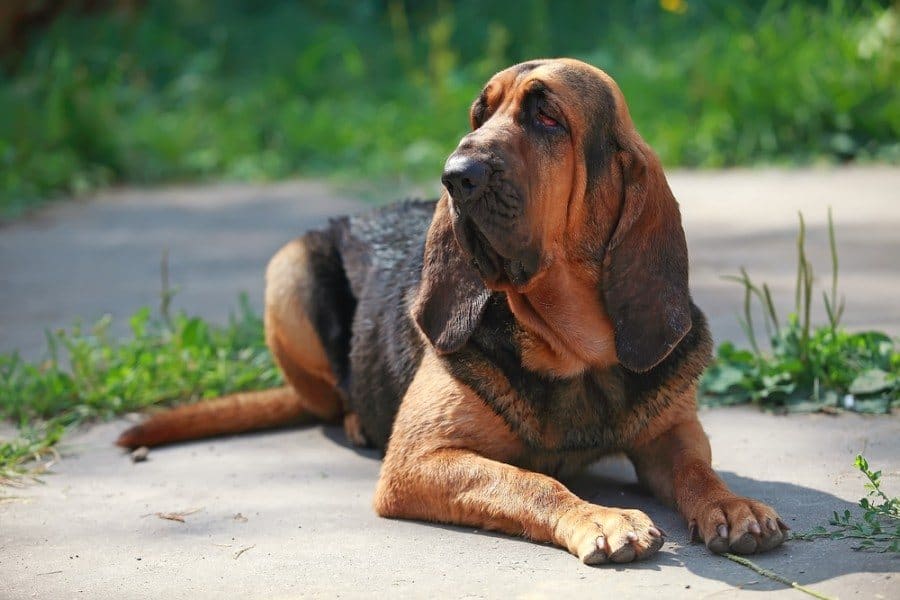If you or someone in your household have an allergy to dogs, it is typically caused by their fur, dander, and saliva proteins. This can make choosing a dog breed difficult because you want to look for a dog breed that does not shed often.
Even hypoallergenic dog breeds can cause minor allergy symptoms in people who have severe allergies to dogs, however, the Bloodhound is unfortunately not a hypoallergenic dog breed.
Why Are Bloodhounds Not Hypoallergenic?
Bloodhounds are unfortunately not considered to be a hypoallergenic dog breed. These large and powerful dogs have a relatively short coat, which is why many dog owners believe they would be hypoallergenic; however, they do not meet the right criteria to be considered as one.
They do not shed as much hair as other dog breeds, so they can make a great canine companion for someone with a minor allergy to dog fur if proper hygiene is practiced in the household to keep loose hair and dander at a minimum. When it comes to Bloodhounds, their dander, urine, and saliva are the main factors that can cause a person to experience an allergic reaction.
This dog breed seems to have more allergens in their dander and fur that they shed rather than their saliva. Bloodhounds seem to shed quite a lot of hair and dander that will accumulate on their fur and fall around the house or get stuck on your clothes. Their fur can also gather on furniture and in other areas that are difficult to clean, which can easily trigger allergies.
All dogs have allergens, even hypoallergenic dogs. Hypoallergenic dog breeds typically shed less, but people with severe allergies to dogs will still suffer from their symptoms even if they have a hypoallergenic dog, because their saliva and urine still contain proteins that trigger the allergic response.

How To Reduce Your Allergies With Bloodhounds
If you suffer from allergies from your Bloodhound—this breed is known to be quite a heavy shedder—then there are certain practices you can maintain to ensure that the amount of dander and loose fur is minimized.
You should first consult with your doctor or allergist to find medications that may help you with your symptoms. They will also be able to give you professional insight on how to live comfortably with a Bloodhound while dealing with the symptoms you have when your allergies are triggered. Some other steps you can take to keep your allergies under control when owning this dog breed is to have them groomed by a professional.
Dog groomers will brush your dog to help get rid of any loose hair and dander, and they can also give your dog a thorough clean and blow-dry. If you suffer from allergies when coming into close contact with your dog, then it will be difficult to groom your dog yourself, so having a mobile grooming service on call or a pet salon close by to help you with the grooming process will be highly beneficial.
Another important practice you will need to maintain to reduce your allergies when owning a Bloodhound is to keep the household free from loose dander and pet hair by frequently vacuuming and brushing up any fur that has collected on the floor. You will also need to keep your dog off of any furniture and bedding, while frequently washing any surfaces your dog encounters.
Conclusion
If you are a mild allergy sufferer but still want to own a Bloodhound, it is still possible. Although this dog breed is not hypoallergenic, if you really want to own one of these loyal, active, and gentle dogs and you only suffer from minor allergies from dog fur, then you can make it work. However, you should be aware that this breed is not hypoallergenic, and their heavy shedding may increase your allergy symptoms.
Featured Image Credit: Shutterstock














